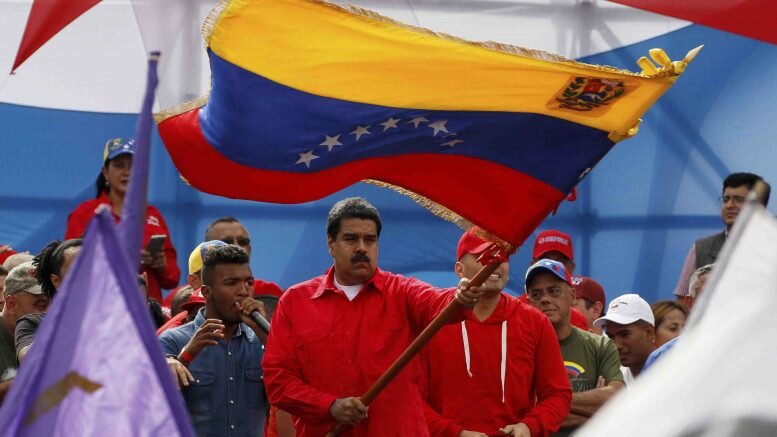Failure of the Venezuelan economy
As many are aware Venezuela is in dire straights after a failed economic approach under the socialist regime, whereby the Government borrowed heavily against future income to prop up their idea of an ideal socialist society. This in stark contrast to how Norway has built up a fund in order to ensure the economy of future generations. It is also not helpful that President Chavez and his successor, Maduro, siphons billions into their and cronies’ pockets. Our guest writer, – who is a Business and Economic Journalist – shares his thoughts on the subject.
Lessons from Past Hyperinflations, Petro crypto currency and its Application in the Venezuelan Economy
To overcome the worst crisis that Venezuelan economy faced in the recent years, President Nicolas Maduro has taken proactive steps to reinvigorate the economy. He introduced the Petro crypto currency, the first of its kind in the world, which is backed by country’s oil reserves and also announced the revaluation of the Bolivar currency.
Whether this two-pronged strategy will survive and create a positive impact on the economy is a multibillion-dollar question.
The Economy already weak from inflation is also facing severe sanctions from the US, Which has already issued statements to prevent all the investors from investing in Petro currency.
How Credible is Petro
Crypto currencies are usually high volatile currencies with no back up from central governments and in the Venezuelan case; the Petro is backed by oil. Despite a lack of historical and research support, a number of countries have been attracted to this currency.
The support and interest received by petro currency from other countries may be due to several reasons. Firstly the transfer of currency takes place through the block chain technology which converts data into a code, to prevent unauthorized access. Secondly, the value of a token (one Unit) is equivalent to sixty dollars worth petro currency.
There are also some uncertainties that are chipped into the currency like discounting factor which provides right to the debtor to delay and extend payments to a creditor for a set period of time for a fee. Another factor, especially in the current scenario, is the fluctuating oil prices. The oil prices may fluctuate because of macroeconomic factors, market speculation and value of the US dollar. The Petro cannot be exchanged for the underlying asset oil is also a limitation. Last but not the least, the amount of corruption that is happening in the country can also dent the value of the Petro.
Revaluation and its impacts
President Madura has proposed to revalue the Bolivar currency by deleting three zeros from it. A similar attempt was made by the Brazilian President Jose Sarney in 1986 when inflation was shooting through the roof to five hundred percent, an anti-inflation program was initiated to put a screeching halt to increasing prices. In the meantime, an upper limit for wages was fixed and three zeros chopped off the Brazilian currency. It obviously made an impact but it was a band-aid solution. When prices started dipping other problems surfaced like severe scarcity of daily necessities which motivated the people to speculate and create a wholesale black market economy.
Brazil is a developing economy, lot of unscrupulous activities were happening outside the purview of Government surveys and fiscal accounting. Therefore real inflationary effects were unknown making it really hard to initiate suitable monetary policies. Crimes became pervasive and omnipresent systemic corruption, government bringing regulation after regulation to tackle the price rise, it was an ever ending game of cat and mouse.
Brazilian case shows that cutting three zeros may not be a viable solution for the problem.
Hyperinflation in Zimbabwe
Immediately after the onset of hyperinflation in Zimbabwe, the ‘dollarization’ policy was started and it was touted to be the best policy to stimulate a Balance Of Payments (BOP) surplus in order to accelerate domestic liquidity. But the official BOP showed startling results in the form of high current account deficit of over twenty-five percent of GDP between 2010 and 2013, seriously pointing out the grave mistakes in the dollarization strategies. According to researchers, there were two main economic issues in the ‘dollarization’ period-the need for more investment and the lack of domestic liquidity.
Situation in Venezuela
Francis Rodriguez the economic adviser to the opposition presidential candidate, Henry Falcon is a supporter of the ‘dollarizing’ of the Venezuelan economy and also made a proposal that every adult and children be distributed cash payments. The Zimbabwean case study shows the inherent limitations of dollarizing the economy. Therefore President Maduro’s stand on strengthening the Bolivar currency is a good decision.
When a country is facing hyperinflation, that is a catastrophe for the country. Helpless citizens lose their assets and hard earned money in the melee. When citizens lose hope, they start migrating to other countries leaving their homeland and other belongings behind. Whatever measures the Government initiates the impact is slow and the progress is tepid. At this outset, when the US declares sanction against the country, it is pulling down the country’s efforts to progress. So instead of repressive measures, all countries should come up together to sustain the country’s progress, repatriating the fled citizens, and helping the Government to build the economy into a prosperous one.
© / Norway Today





